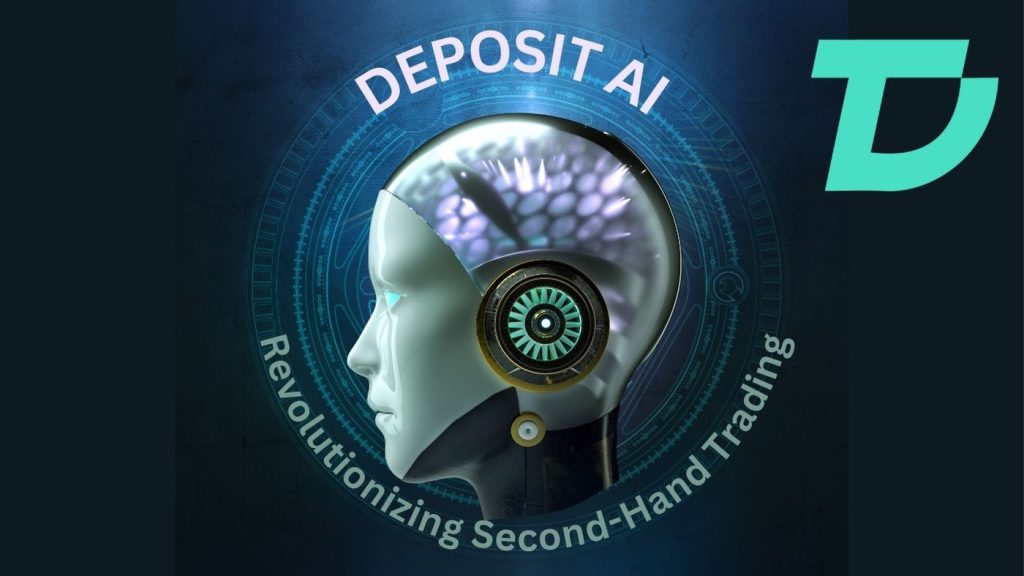In today’s world, the second-hand market is booming. With increasing environmental concerns and economic pressures, people are turning to second-hand goods more than ever before.
Platforms like eBay, Letgo, and Xianyu are leading the charge, making it easier for individuals to buy and sell used items. However, one crucial aspect of second-hand trading that hasn’t received enough attention is pricing. Who sets the price for these items, and how does it affect buyers’ behavior?

This is where Deposit AI comes in. Deposit AI refers to the use of artificial intelligence (AI) agents to determine the pricing of second-hand goods on peer-to-peer (P2P) platforms.
In this article, we’ll explore the impact of Deposit AI on buyers’ willingness to pay (WTP) and how it can revolutionize the second-hand trading landscape.
Second-Hand Trading on P2P Platforms
Before delving into the specifics of Deposit AI, let’s take a closer look at second-hand trading on P2P platforms. Second-hand trading involves the buying and selling of used items through channels separate from those used for new products.
Online platforms have become the primary arena for second-hand transactions, with the sector experiencing rapid growth in recent years.
Overview of Studies
To understand the role of Deposit AI in second-hand trading, researchers conducted four studies:
- Interviews: In-depth interviews were conducted to gauge consumers’ perceptions of AI in second-hand pricing.
- Main Effect Study: This study examined whether buyers are more willing to pay for items priced by AI compared to those priced by sellers.
- Mediating Role Study: Investigated how buyers’ perception of objectivity mediates the relationship between the price setter and WTP.
- Moderating Effect Study: Explored the moderating role of perceived reductionism in AI pricing on buyers’ WTP.
Findings and Implications
The research yielded several key findings:
1. Buyer Preference for Deposit AI
Buyers showed a greater willingness to pay for items priced by AI compared to those priced by sellers. This indicates that Deposit AI could enhance buyer trust and confidence in pricing accuracy.
2. Perceived Objectivity
The perceived objectivity of AI played a crucial role in influencing buyers’ WTP. When AI pricing was perceived as more objective, buyers were more inclined to pay higher prices.
3. Moderating Role of Reductionism
However, concerns about the reductionistic nature of AI could diminish its impact on buyers’ WTP. If buyers perceived AI pricing as overly simplistic or lacking nuance, they were less likely to trust its pricing recommendations.
4. Augmented Intelligence
Interestingly, the study also found that augmented intelligence, which combines human judgment with AI capabilities, could be just as effective as pure AI in influencing buyers’ WTP.
Implications for Practitioners
These findings have significant implications for P2P platform operators and sellers:
1. Building Trust through Deposit AI
P2P platforms should invest in AI pricing agents to enhance trust and transparency in second-hand pricing. By leveraging AI, platforms can provide more accurate and consistent pricing, leading to improved buyer satisfaction.
2. Addressing Perceived Objectivity
Platforms must ensure that AI pricing is perceived as objective and reliable by buyers. This can be achieved through transparency about the pricing algorithms used and ongoing efforts to refine AI capabilities.
3. Mitigating Reductionism Concerns
To overcome concerns about reductionism, platforms should focus on enhancing the sophistication and adaptability of AI pricing algorithms. By incorporating more nuanced pricing factors and considering individual buyer preferences, AI can better mimic human judgment.
4. Exploring Augmented Intelligence
Platforms may also explore the use of augmented intelligence, combining AI capabilities with human oversight. This hybrid approach could offer the benefits of AI while addressing concerns about its perceived limitations.
Conclusion
Deposit AI has the potential to revolutionize second-hand trading by providing more accurate, transparent, and consistent pricing. By leveraging AI capabilities, P2P platforms can enhance buyer trust, streamline transactions, and drive growth in the second-hand market.
However, it’s essential to address concerns about AI objectivity and reductionism to realize the full potential of Deposit AI. With careful implementation and ongoing refinement, Deposit AI could become the “invisible hand” of the second-hand market, guiding transactions and maximizing value for buyers and sellers alike.






